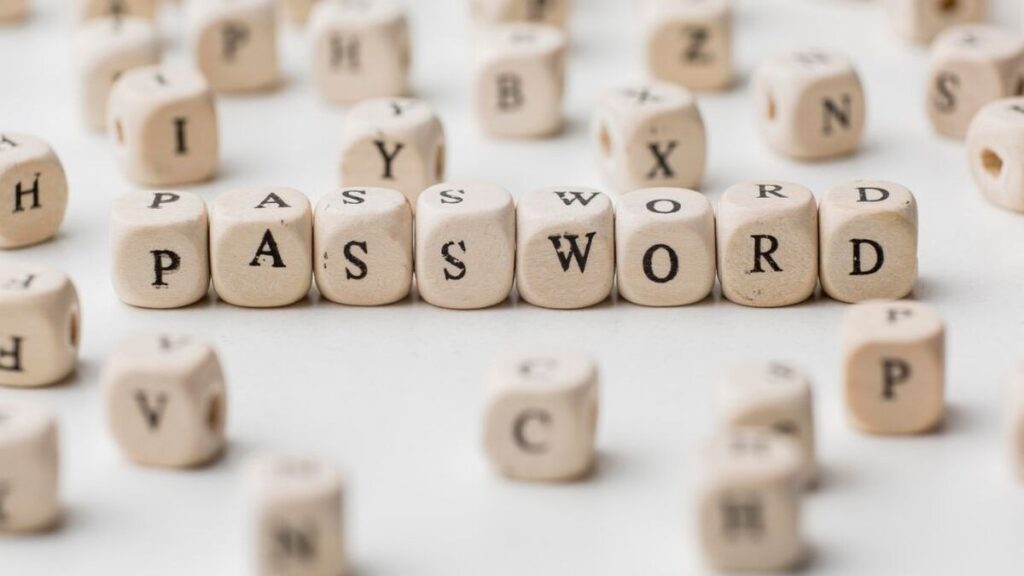Introduction
As we progress deeper into the digital age, a crucial question is increasingly coming into focus: Can AI Replace the Password? Our digital lives rely heavily on passwords for security, but with rapid technological advancements, traditional passwords might soon become obsolete. Artificial Intelligence (AI) has brought new capabilities to the forefront, promising security measures far more sophisticated than static passwords.
- Introduction
- The Evolution of Passwords
- Common Issues with Password Security
- AI's Role in Modern Security Solutions
- AI-Based Alternatives to Passwords
- How Does AI Compare to Passwords?
- Step-By-Step Guide to Implementing AI-Based Security
- The Benefits of AI-Driven Security
- Potential Drawbacks and Limitations of AI Security
- Why AI Security is More Secure in 2025
- Future AI Security Trends to Watch
- How Businesses Are Benefiting from AI-Based Security
- How Individuals Can Benefit from AI Replacing Passwords
- Why AI is Likely to Become the Standard Security Protocol
- Conclusion
AI-driven authentication methods, such as biometrics and behavioral analysis, offer dynamic, personalized security that adapts to each user, reducing the risk of breaches and data theft. This shift toward AI-powered security systems represents a major step forward, and it’s possible that a password-free future—one that’s safer and easier to navigate—is closer than we might expect.
The Evolution of Passwords
Passwords have been part of our digital lives for decades, evolving from simple phrases to complex strings that combine letters, numbers, and special characters. Despite these advances, the underlying principle remains: a password is a code only the user knows. But is that enough?
In 2025, passwords feel like relics. From banking apps to social media, the risk of breaches is ever-present, and traditional passwords are no longer adequate. This has opened the door for innovative technologies like AI to step in, offering security solutions beyond anything a string of characters could achieve.
Common Issues with Password Security
Let’s face it: remembering multiple complex passwords is overwhelming. Many of us resort to shortcuts, like reusing passwords across sites or creating simpler, easy-to-remember codes. Unfortunately, these habits increase the risk of cyber threats such as hacking and phishing.
The modern world demands a higher level of security—one that traditional passwords can’t provide. This is where the question arises again: Can AI Replace the Password? AI offers convenience and enhanced security measures that are hard to bypass.
AI’s Role in Modern Security Solutions
So, how does AI enter the picture? Artificial intelligence doesn’t just make security smarter; it makes it adaptable. AI continuously evolves and learns, unlike traditional security methods that rely on static passwords or predefined rules. It analyzes patterns in user behavior, allowing it to recognize potential threats and adapt in real time to prevent harm. Machine learning and behavioral analysis play a key role in this process.
AI security systems monitor user actions, such as typing speed, device usage, and movement patterns. If something unusual is detected, the system can respond instantly, offering proactive protection that passwords alone cannot provide. This adaptability makes AI far superior in securing digital environments against emerging threats.
AI-Based Alternatives to Passwords
AI offers a range of security alternatives, each with unique advantages:
- Biometrics – Facial recognition, fingerprinting, and even iris scans have become mainstream. Biometric authentication powered by AI provides high accuracy and is nearly impossible to replicate.
- Behavioral Analysis – This technology analyzes how we type, scroll, and interact with our devices, creating a behavioral profile that acts as a unique identifier.
These AI-powered techniques make it significantly harder for intruders to gain unauthorized access, presenting a powerful alternative to traditional passwords.
How Does AI Compare to Passwords?
The main strength of AI-based security lies in its adaptability. Unlike passwords, which remain static, AI-driven security can adjust to detect potential threats by analyzing behaviors, biometrics, and other indicators.
A great example is the banking industry, where AI-powered facial recognition has already reduced fraud rates. Can AI Replace the Password completely? It might. The enhanced accuracy and ease of access make AI solutions an attractive alternative to relying solely on passwords.
Step-By-Step Guide to Implementing AI-Based Security
Want to secure your digital life with AI? Here’s a simple guide:
- Assess Your Needs – Identify the types of data and access points you need to secure.
- Choose an AI Solution – Research and select a trusted AI-driven security platform, considering factors like biometrics and behavioral analysis.
- Set Up Your System – Follow the installation steps and customize your settings based on your security needs.
AI-based security might initially seem complex, but it’s far simpler than managing multiple passwords. Once set up, AI can continually monitor and adapt to secure your data.
The Benefits of AI-Driven Security
Switching to AI-powered security offers several clear advantages that go beyond traditional measures:
- Ease of Access—With AI, There’s no need to remember complex passwords or repeatedly reset them. Authentication becomes seamless and more intuitive, making it easier for users to access their accounts securely.
- Improved Security—AI can detect potential threats in real time, much faster than traditional security systems, allowing for quicker responses and reducing the risk of breaches.
By 2025, AI will be more than an upgrade; it will represent a complete transformation of digital security. It will redefine how we approach protection, providing enhanced security and a smoother user experience.
Potential Drawbacks and Limitations of AI Security
AI-based security offers exciting potential, but it comes with its own set of challenges. Privacy concerns are at the forefront, especially with biometric data like facial recognition and fingerprint scans. For users to feel secure, they must trust that companies are handling their sensitive information responsibly, which calls for transparency around data storage and usage practices.
Additionally, AI security systems require substantial processing power and advanced infrastructure to operate effectively. This need for powerful technology can be a limiting factor, as not all individuals or businesses can access the necessary resources. Smaller organizations, in particular, may need help with the costs and technical demands, which could slow the widespread adoption of AI-driven security solutions despite their potential benefits.
Why AI Security is More Secure in 2025
By 2025, AI technology had reached impressive maturity levels, transforming digital security in ways once considered futuristic. Advanced machine learning algorithms now detect threats with greater accuracy and speed, enhancing the reliability of AI-based security systems. These algorithms can quickly adapt to new patterns, learning from emerging cyber threats in real time and making digital environments safer.
Integrating AI with daily devices—such as smartphones, home security systems, and even wearable tech—has become effortless, offering seamless protection for users at home and on the go. This widespread, interconnected approach enables AI to provide proactive security, instantly identifying and responding to threats while maintaining an easy, unobtrusive user experience.
Future AI Security Trends to Watch
The role of AI in security is rapidly expanding, with cutting-edge developments in behavioral biometrics and predictive threat analysis on the horizon. Envision a future where your devices can identify you through a blend of unique behaviors—such as your typing rhythm, walking gait, or voice nuances. These AI-driven behavioral patterns add a personalized layer of security that goes far beyond a password or fingerprint.
AI can continuously verify identity by learning and recognizing each user’s distinct traits, making unauthorized access nearly impossible. With predictive threat analysis, AI can proactively assess and mitigate risks, identifying unusual patterns that suggest potential threats before they materialize, creating a uniquely customized and highly secure digital environment.
How Businesses Are Benefiting from AI-Based Security
Businesses are increasingly turning to AI-based security to safeguard their digital assets, finding it significantly reduces the risk of data breaches. AI’s real-time ability to detect suspicious activity means potential threats are identified and neutralized faster than traditional methods. This proactive protection enhances customer trust, as clients feel more confident sharing sensitive information with companies prioritizing robust security measures.
Furthermore, with AI managing security, businesses can redirect their focus toward core functions without the constant worry of potential cyber threats. The efficiency and reliability of AI-driven security allow companies to operate with peace of mind, knowing that their data—and their customers’ data—remains protected, fostering long-term loyalty and a positive brand reputation.
How Individuals Can Benefit from AI Replacing Passwords
For individuals, AI security brings unmatched convenience by streamlining the authentication process across various aspects of daily life. Imagine easily accessing your banking app or personal files, as AI recognizes you through facial recognition, voice patterns, or behavioral cues. This removes the need for complex passwords or multiple authentication steps, making digital interactions faster and more intuitive.
With AI handling the identification process, users can securely access sensitive information without the stress of memorizing long, complicated passwords or the risk of using weak ones. AI’s seamless, effortless authentication enhances security and simplifies our digital experience, empowering individuals to enjoy faster, safer access to their accounts and data.
Why AI is Likely to Become the Standard Security Protocol
The momentum behind AI-based security is rapidly gaining traction and shows no signs of slowing down. As more people experience the convenience and protection offered by AI, its adoption is becoming increasingly widespread, with many seeing it as the future of digital security. Public trust in AI is growing, especially as it demonstrates its effectiveness in safeguarding personal data and preventing breaches.
By 2025, AI will likely completely replace the passwords as consumers and businesses embrace more efficient, personalized security solutions. The shift to AI will enhance security and streamline the user experience, making traditional passwords a thing of the past and ushering in a new era of digital safety.
Conclusion
In conclusion, Can AI Replace the Password? The answer is yes, and the shift is gaining momentum. As we move into a more connected world, the growing demand for security, convenience, and adaptability makes AI-driven security solutions the clear choice for digital protection. With AI offering advanced methods like biometrics, behavioral recognition, and predictive threat analysis, it provides a level of security far beyond traditional passwords.
These AI-based systems enhance protection and simplify the user experience, making them attractive options for individuals and businesses. As technology advances, it’s increasingly clear that a password-free future powered by AI is no longer just a possibility—it’s becoming a reality.


